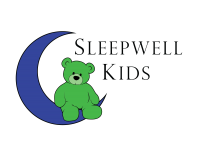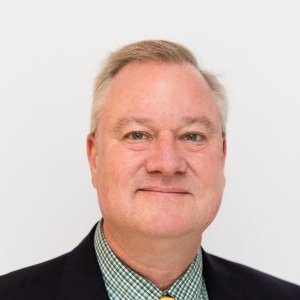What are the steps for scheduling a sleep study?
1. Your physician will submit a referral for a sleep study
2. A benefit investigation will be performed with your insurance company to determine if there is a patient responsibility for the study. Once this is complete if there is a financial responsibility a member of our team will contact you to arrange payment. Payment is required prior to study.
3. We require that a credit card be kept on file per our policy for no show appointments.
4. Once the above has been completed we will forward the referral to SleepWell Diagnostics for scheduling and they will contact you to arrange your study.
5. If you need to cancel or reschedule your study, we ask that you do so no less than 48 hours in advance. There is a $200 fee for no showing or cancelling less than 48 hours before the scheduled study.
6. A staff member will call you 72 hours before your child’s sleep study to confirm your appointment and answer any questions or concerns. This will also give you adequate time to cancel or reschedule.
What should I expect during my child’s sleep study?
Your child will sleep in a hotel style room where one parent or primary caregiver should stay with the child the entire study and will also have a bed available for sleep.
Both parents may stay until the child falls asleep, but only one parent will be allowed to stay the duration of the study.
Please arrive around 7:30pm-8:00pm on the day of the study to allow your child to get adjusted to the room.
We try very hard to honor your child’s normal bed and wake times.
The study is painless and sensors will be placed on your child to monitor:
• Breathing
• Brain waves
• Eye movements
• Muscle activity
• Body position
• Blood oxygen levels
Your child’s room will have a TV and DVD player, feel free to bring a favorite movie. Stuffed animals, blankets or special toys are also encouraged to help your child relax.
Rooms DO NOT have private bath or showers, please complete any of these routines prior to arriving.
Please bring bottles, wipes, formula, or other items for infant children. There is a refrigerator located in the center. If your child is not potty-trained, please bring pull-ups or special sleepwear.
We want this experience to be pleasant and relaxing for child, please call us at (980)213-2161 or contact us if you have any questions or concerns.
How should I prepare my child?
1. Bathe your child before coming to the sleep lab. Avoid use of lotions and/or oils on the hair and body, this may cause the sensors not to stick or provide inaccurate readings.
2. Do not allow your child to eat or drink anything containing caffeine after 12:00 noon on the day of the study. Caffeine may be found in chocolate, soft drinks, tea, coffee, and several other things.
3. Give medicines as prescribed by your doctor. If your child needs to take medicines while at the sleep lab, please bring with you. Please inform the lab tech of any medications you are giving your child.
4. Avoid naps on the day of sleep study.
5. Please have your child eat dinner before arriving at the Center. Small snacks are allowed but none containing caffeine.
6. Your child may sleep in whatever makes them comfortable. Do not wear or bring “footie” pajamas as they may block sensors. Please bring socks or slippers to wear when in the hallway or restrooms.
Can I request a tour of the lab?
You and your child may request a tour of one of our sleep labs in advance of the scheduled study. Please let us know if you would like to tour any of our facilities and we will arrange a time and date.
What equipment is used during the study
The following equipment is used by our partner SleepWell Diagnostics to ensure an accurate study for your child:
The EEG or electroencephalogram is a major part of a sleep study. It measures and records four forms of brain wave activity - alpha, beta, delta and theta waves. Alpha waves are usually found during relaxed wakefulness, particularly when your child’s eyes are closed. Theta waves are seen during the lighter sleep stages 1 and 2, while delta waves occur chiefly in deep sleep, the so-called "slow wave sleep" found in sleep stages 3 and 4.
EMG or electromyogram: records muscle activity such as face twitches, teeth grinding, and leg movements. It also helps in determining the presence of REM stage sleep. The amount and duration of these activities provides the doctor important information about your child’s sleep.
EOG or electroculogram: records eye movements. These movements are important in determining the different sleep stages, particularly REM stage sleep. The electrodes are usually placed on the outer aspect of your child’s right eyebrow and along the outer aspect below or beneath their left eye.
EKG or electrocardiogram: records heart activities, such as rate and rhythm. Electrodes are placed on your child’s chest.
Nasal Airflow Sensor: records breath temperature, airflow, apnea and hypopnea events. A sensor is placed near your child’s nose and mouth.
Chest/Abdomen Belts: record breathing depth, apnea and hypopnea events. Elastic belts are placed around your child’s chest and abdomen.
Oximeter: records blood oxygen saturation. A band-aid like clip is placed on a finger.
Video: records body positioning and movements.
Snore Microphone: records snoring. An electrode is placed over your child’s trachea, on his/her lower neck.
What Insurances Do You Accept?
We accept most major insurance plans including:
• Aetna
• Blue Cross Blue Shield
• Cigna
• Coventry
• Medcost
• United Healthcare
• North Carolina Medicaid
• Select South Carolina Medicaid Plans

 SleepWell Kids is a division of Asthma & Allergy Specialists, PA established in 2015 to serve the pediatric population of Charlotte, NC and the surrounding areas. Our Physicians have been practicing medicine in the areas of pediatric pulmonology, allergy, and chronic illnesses such as cystic fibrosis for over 20 years. We are committed to fostering a family-centered care approach, that means involving the family and caregivers, from start to finish. We will work closely with your child’s pediatrician as well as other specialists in the areas of child development and behavioral health, otorhinolaryngology (ENT), oral surgery and maxillofacial surgery. Partnering with SleepWell Diagnostics we look forward to serving you and your child in the comfort of our Sleep Lab. At SleepWell Kids, our goal is to find the best treatment plan for your child so that they are able to sleep peacefully.
SleepWell Kids is a division of Asthma & Allergy Specialists, PA established in 2015 to serve the pediatric population of Charlotte, NC and the surrounding areas. Our Physicians have been practicing medicine in the areas of pediatric pulmonology, allergy, and chronic illnesses such as cystic fibrosis for over 20 years. We are committed to fostering a family-centered care approach, that means involving the family and caregivers, from start to finish. We will work closely with your child’s pediatrician as well as other specialists in the areas of child development and behavioral health, otorhinolaryngology (ENT), oral surgery and maxillofacial surgery. Partnering with SleepWell Diagnostics we look forward to serving you and your child in the comfort of our Sleep Lab. At SleepWell Kids, our goal is to find the best treatment plan for your child so that they are able to sleep peacefully.

